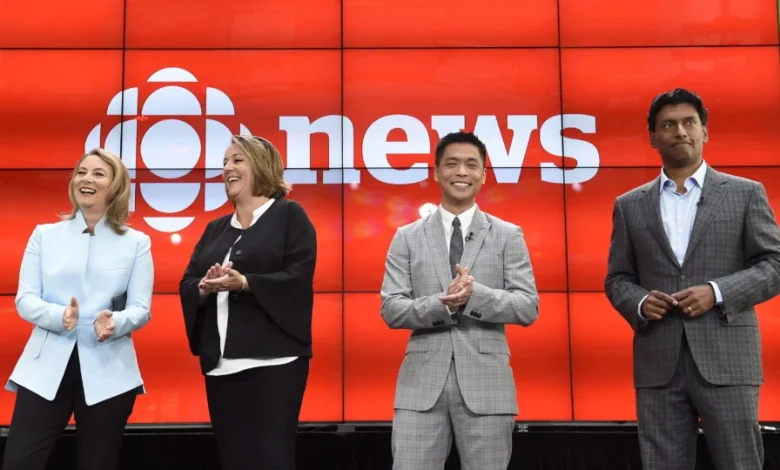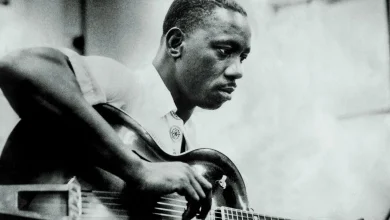CBC hired 84 percent racialized, Indigenous, or disabled while having job vacancies for top talent: Internal report

The CBC far exceeded its “equity representation” target in the last fiscal year, with 84.1 percent of new hires being “Indigenous Peoples, persons with disabilities, and racialized people,” according to the public broadcaster’s new corporate report. In the “reflecting contemporary Canada” subsection, the report shows the CBC had aimed for 65 percent of new hires to fall within the three groups, but surpassed it by 19 percentage points.
Some employment lawyers believe the CBC’s fixation on race and disabilities in its hiring process is limiting the broadcaster from accurately reflecting the Canadian population, and could fall into hiring discrimination.
“Moving away from merit-based hiring is a disaster no matter what the makeup of your organization is,” said Toronto-based employment lawyer Puneet Tiwari, partner at Levitt LLP. “If an employer wants a more diverse workplace, it should be an equal opportunity employer, but still hire based on merit. As an Indo-Canadian whose grandparents came here in the 60s, I’ve seen more representation across all media outlets.”
CBC hiring doesn’t appear to reflect the overall ethnic demographics of the country. Canada’s most recent census data from 2021 showed that approximately 4.9 percent of Canadians were Indigenous, 26.5 were visible minorities (with 67.4 percent being white), and 27 percent had disabilities. The country’s demographics and population has dramatically changed in the last four years through immigration, however, increasing from 38.1 million in 2021 to 41.7 million in 2025.
CBC-Radio Canada’s mandate states its programming should “reflect the multicultural and multiracial nature of Canada.”
CBC’s corporate spokesperson Leon Mar told The Hub that the public broadcaster has annual hiring targets to “close workforce representation gaps in comparison to Canada’s force.”
i
The cover of the CBC’s latest Corporate Plan Summary report (CBC).
“Exceeding these hiring targets is a sign that our strategy to broaden our talent pools is working. We have existing gaps for racialized people, Indigenous Peoples, and persons with disabilities, when looking at our overall CBC/Radio-Canada workforce in comparison to the labour force,” Mar explained.
When asked if CBC’s equity policy could fall into discrimination on the basis of race, Mar answered, “No, our policies strictly prohibit discrimination and are in compliance with the Canadian Human Rights Act and the Employment Equity Act.”
The CBC corporate report cites “increased self-identification” and improved “hiring initiatives” as the reasons for greatly surpassing its equity targets. The CBC ratcheted up its equity new-hire target from 50 percent in 2023-24 (overshooting that year, too, hitting 60.2 percent), to 65 percent last fiscal year. CBC upped it again to 66 percent for this fiscal year (2025-26), where they hit 84.1 percent.
CBC/Radio Canada has over 7,000 employees, which the public broadcaster asserts should reflect the makeup of the population of Canada.
Out of CBC’s total workforce as of June 2025, employees self-identifying as Indigenous were 2.1 percent, 11.3 percent were persons with disabilities, and 20.7 were visible minorities.
Job applicants to the CBC are asked if they identify as racialized, disabled, or Indigenous during the hiring process.
“In line with the Employment Equity Act and as part of the recruitment process, we ask candidates if they self-identify as Indigenous, a person with a disability, or a racialized person,” Mar explained in describing how the CBC determines their statistics on minority group hires. “For each question, candidates can answer ‘Yes’, ‘No’, or ‘Rather not answer’.”
Each CBC job posting includes a passage describing how the broadcaster is “committed to being a leader in reflecting our country’s diversity…That’s because we can only create and tell the stories that connect Canadians, by having a workforce that mirrors the ever-changing makeup of our country.”
Issues filling top-talent job vacancies
At the same time, the CBC described how they’ve had difficulties hiring top talent due to the precarious state of the journalism industry.
“The shortage of specialized talent, both domestically and internationally, increases recruitment difficulty and costs. This challenge is compounded by a declining interest in media careers, particularly in journalism, which may adversely impact customer experience and revenue.”
In an attempt to address its top-talent shortage, the CBC launched an “Accelerator program”, which it describes as “a paid employment and skills development initiative for graduates of Equity and Inclusion’s On-Air Talent Development Program.”
Back in August, the CBC faced backlash when Juno News reported the public broadcaster had hired at least 20 temporary foreign workers through the federal government’s Labour Market Impact Assessments (LMIA) program since 2015, claiming there were no Canadians available to fill the jobs.
“Our approach to recruitment isn’t about narrowing our searches, rather, it’s about significantly broadening them to recruit from the most diverse and representative pool of qualified professionals possible,” Mar wrote to The Hub. “Our success in hiring qualified people from all communities is one of our solutions to the talent shortage.”
Journalist Travis Dhanraj, a visible minority journalist, resigned from his role as a CBC news host in July, calling the public broadcaster’s diversity push a branding exercise.
“With the CBC, everything is completely performative. They don’t actually care about hiring the best journalist, or letting the journalist even do their jobs…I think they’re [focused] on ticking boxes,” said Kathryn Marshall, one of the employment lawyers representing Dhanraj. “I think they tokenized him…they wanted him to fit a mould they thought a racialized on air personality journalist should be like,” Marshall told The Hub.
Employment lawyer Tiwari believes corporations like the CBC need to get back to hiring based solely on ability and skillset.
“It’s not that they want equal representation or a population that reflects the diversity of Canada. They’re choosing these numbers willy-nilly, and someone over there has a focus on hiring that is oriented on things other than merit, and that’s a problem,” said Tiwari.“To think otherwise, it is insulting to everyone who’s worked hard and gotten to where they are. There need not be a focus on anything other than merit.”
Graeme Gordon
Graeme Gordon is The Hub’s Senior Editor and Podcast Producer. He has worked as a journalist contributing to a variety of publications, including CBC,…
Read more





